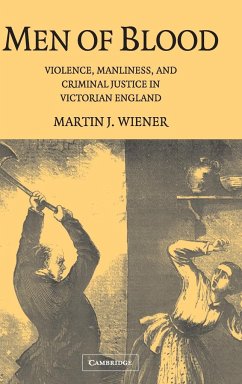Short description/annotation
An examination of the treatment of serious violence by men against women in nineteenth-century England.
Main description
An examination of the treatment of serious violence by men against women in nineteenth-century England. During Victoria's reign the criminal law came to punish such violence more systematically and heavily, while propagating a new, more pacific ideal of manliness. Yet this apparently progressive legal development called forth strong resistance, not only from violent men themselves but, from others who drew upon discourses of democracy, humanitarianism and patriarchy to establish sympathy with 'men of blood'. In exploring this development and the contest it generated, Professor Wiener analyzes the cultural logic underlying shifting practices in nineteenth-century courts and Whitehall, and locates competing cultural discourses in the everyday life of criminal justice. The tensions and dilemmas this book highlights are more than simply 'Victorian' ones; to an important degree they remain with us. Consequently this work speaks not only to historians and to students of gender but also to criminologists and legal theorists.
Table of contents:
Preface; Introduction; 1. Violence and law, gender and law; 2. When men killed men; 3. Sexual violence; 4. Homicidal women and homicidal men: a growing contrast; 5. Bad wives I: drunkenness and other provocations; 6. Bad wives II: adultery and the unwritten law; 7. Establishing intention: probing the mind of a wife killer.
Hinweis: Dieser Artikel kann nur an eine deutsche Lieferadresse ausgeliefert werden.
An examination of the treatment of serious violence by men against women in nineteenth-century England.
Main description
An examination of the treatment of serious violence by men against women in nineteenth-century England. During Victoria's reign the criminal law came to punish such violence more systematically and heavily, while propagating a new, more pacific ideal of manliness. Yet this apparently progressive legal development called forth strong resistance, not only from violent men themselves but, from others who drew upon discourses of democracy, humanitarianism and patriarchy to establish sympathy with 'men of blood'. In exploring this development and the contest it generated, Professor Wiener analyzes the cultural logic underlying shifting practices in nineteenth-century courts and Whitehall, and locates competing cultural discourses in the everyday life of criminal justice. The tensions and dilemmas this book highlights are more than simply 'Victorian' ones; to an important degree they remain with us. Consequently this work speaks not only to historians and to students of gender but also to criminologists and legal theorists.
Table of contents:
Preface; Introduction; 1. Violence and law, gender and law; 2. When men killed men; 3. Sexual violence; 4. Homicidal women and homicidal men: a growing contrast; 5. Bad wives I: drunkenness and other provocations; 6. Bad wives II: adultery and the unwritten law; 7. Establishing intention: probing the mind of a wife killer.
Hinweis: Dieser Artikel kann nur an eine deutsche Lieferadresse ausgeliefert werden.








